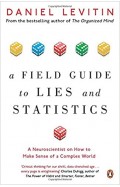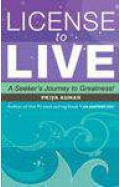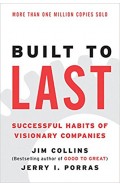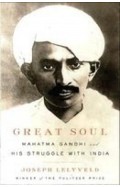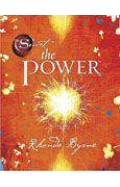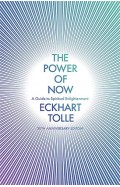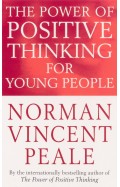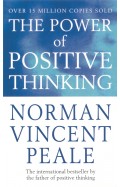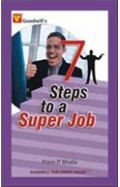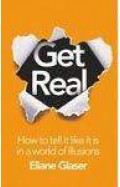- Home
- Books
- Sale
- Online Book Bazar Up To 60%
- 10% OFF
- Something Doesn't Add Up - Surviving Statistics in a Post-Truth World
Something Doesn't Add Up - Surviving Statistics in a Post-Truth World
By: Paul Goodwin
-
Rs 2,065.50
- Rs 2,295.00
- 10%
You save Rs 229.50.
Due to constant currency fluctuation, prices are subject to change with or without notice.
Some people fear and mistrust numbers. Others want to use them for everything. After a long career as a statistician, Paul Goodwin has learned the hard way that the ones who want to use them for everything are a very good reason for the rest of us to fear and mistrust them. Something Doesn't Add Up is a fieldguide to the numbers that rule our world, even though they don't make sense.
Wry, witty and humane, Goodwin explains mathematical subtleties so painlessly that you hardly need to think about numbers at all. He demonstrates how statistics that are meant to make life simpler often make it simpler than it actually is, but also reveals some of the ways we really can use maths to make better decisions. Enter the world of fitness tracking, the history of IQ testing, China's social credit system, Effective Altruism, and learn how someone should have noticed that Harold Shipman was killing his patients years before they actually did. In the right hands, maths is a useful tool. It's just a pity there are so many of the wrong hands about.
Some people fear and mistrust numbers. Others want to use them for everything. After a long career as a statistician, Paul Goodwin has learned the hard way that the ones who want to use them for everything are a very good reason for the rest of us to fear and mistrust them. Something Doesn't Add Up is a fieldguide to the numbers that rule our world, even though they don't make sense.
Wry, witty and humane, Goodwin explains mathematical subtleties so painlessly that you hardly need to think about numbers at all. He demonstrates how statistics that are meant to make life simpler often make it simpler than it actually is, but also reveals some of the ways we really can use maths to make better decisions. Enter the world of fitness tracking, the history of IQ testing, China's social credit system, Effective Altruism, and learn how someone should have noticed that Harold Shipman was killing his patients years before they actually did. In the right hands, maths is a useful tool. It's just a pity there are so many of the wrong hands about.
Something Doesn't Add Up - Surviving Statistics in a Post-Truth World
By: Paul Goodwin
Rs 2,065.50 Rs 2,295.00 Ex Tax :Rs 2,065.50
Zubin Mehta: A Musical Journey (An Authorized Biography)
By: VOID - Bakhtiar K. Dadabhoy
Rs 840.00 Rs 1,050.00 Ex Tax :Rs 840.00
Infinite Powers: The Story of Calculus - The Language of the Universe (PB)
By: Steven Strogatz
Rs 1,885.50 Rs 2,095.00 Ex Tax :Rs 1,885.50
Built to Last Successful Habits Of Visionary CompaniesAI
By: James C. Collins
Rs 4,495.00 Ex Tax :Rs 4,495.00
Great Soul Mahatma Gandhi And His Struggle With India
By: Joseph Lelyveld
Rs 780.00 Rs 975.00 Ex Tax :Rs 780.00
The Power Of Positive Thinking For Young People
By: Norman Vincen Peale
Rs 2,495.00 Ex Tax :Rs 2,495.00
Get Real: How To Tell It Like It Is In A World of Illusions
By: Eliane Glaser
Rs 500.00 Rs 625.00 Ex Tax :Rs 500.00
Infinite Powers: The Story of Calculus - The Language of the Universe (PB)
By: Steven Strogatz
Rs 1,885.50 Rs 2,095.00 Ex Tax :Rs 1,885.50
No recently viewed books available at the moment.
Zubin Mehta: A Musical Journey (An Authorized Biography)
By: VOID - Bakhtiar K. Dadabhoy
Rs 840.00 Rs 1,050.00 Ex Tax :Rs 840.00
Something Doesn't Add Up - Surviving Statistics in a Post-Truth World
By: Paul Goodwin
Rs 2,065.50 Rs 2,295.00 Ex Tax :Rs 2,065.50
Infinite Powers: The Story of Calculus - The Language of the Universe (PB)
By: Steven Strogatz
Rs 1,885.50 Rs 2,095.00 Ex Tax :Rs 1,885.50












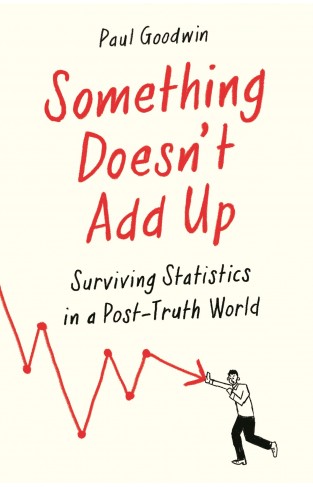
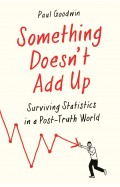
-120x187.jpg?q6)





-120x187.jpg?q6)
